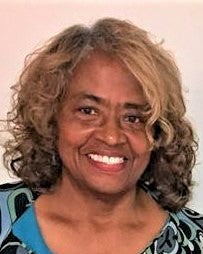A heart for San Francisco and Selma, Alabama
Published 3:17 pm Monday, July 24, 2023
|
Getting your Trinity Audio player ready...
|
When I saw on the NBC Nightly News last week that Tony Bennett had passed, a feeling of sadness came over me and a tear found its way down my cheek. It took me a while to figure out the origin of my sadness for I did not know Mr. Bennett personally, but in my reminiscing about the songs he sang, maybe I realized those songs connected me to my dad Issac Payton.
My dad had a large collection of albums and loved all kinds of music. I remember him singing along to Bennett’s Fly Me to the Moon, and my favorite, ‘I Left My heart in San Francisco.’
I would take stacks of his albums and play them on my record player. To this day, Mel Carter’s “Hold Me, Thrill Me”, the Four Tops version of ‘Matchmaker’ (from the Broadway play Fiddler on the Roof,) Dionne Warwick’s Message to Michael which dad called ‘Kentucky Bluebird’ and Frank Sinatra’s New York New York brings a smile to my face as dad and I sang those songs together. But it was dad holding a small green Coca Cola bottle to his mouth as a pretend microphone, singing Tony Bennett’s songs that were the best. Neither one of us could carry a tune but that didn’t diminish the idea we thought we sounded good.
In my sophomore year of high school, Tony Bennett came into dad’s and my conversation in a different way. Mr. Bennett was shown on the TV news participating in the Civil Rights Movement, the march on Selma, Alabama.
Mr. Bennett, a tireless civil rights activist had accepted singer Harry Belafonte’s offer to march alongside Rev. Martin Luther King Jr.’s voting rights march from Montgomery to Selma in 1965.The marches were organized to protest the blocking of Black Americans’ right to vote by the systematic racist structure of the Jim Crow South.
“He said, “When the march started, I had a strange sense of déjà vu. “I kept flashing back to a time twenty years earlier when my buddies and I had fought our way into Germany. It felt the same way down in Selma: the white state troopers were really hostile, and they were not shy about showing it. There was the threat of violence all along the march route, from Montgomery to Selma, some of which was broadcast on the nightly news and really helped to make the country aware of the ugliness that was still going on in the South.”
Though he did not walk all 54 miles, he went ahead to Montgomery to greet Dr. King and sing for the marchers alongside Ella Fitzgerald, Pete Seeger, Joan Baez, Sammy Davis Jr., Mahalia Jackson and others.
He said, “I’m enormously proud that I was able to take part in such a historic event, but I’m saddened to think that it was ever necessary, and that any person should suffer simply because of the color of his skin.”
Whenever I think of the lines from one of his most popular songs, ‘I’ve Got You Under My Skin’ that reads “I’d sacrifice anything come what might, for the sake of having you near, in spite of a warning voice that comes in the night and repeats and repeats in my ear.” I have to believe he knew what he might be sacrificing his personal safety, his life, his career by participating in that march. And that a warning voice of fear indeed in the night before the march repeated itself in his ear. He joined in that march anyway.
Mr. Bennett, thinking about it now, that tear was for you. Thank you.
Leesa Jones is a Washington native and the co-curator of the Washington Waterfront Underground Railroad Museum.






